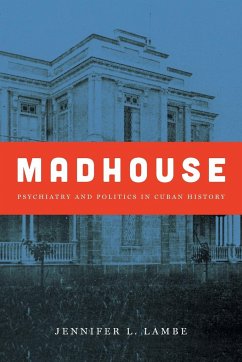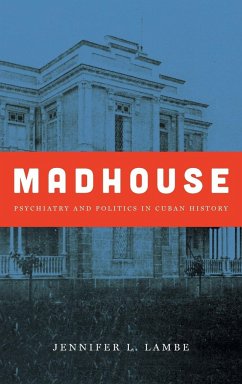On the outskirts of Havana lies Mazorra, an asylum known to--and at times feared by--ordinary Cubans for over a century. Since its founding in 1857, the island's first psychiatric hospital has been an object of persistent political attention. Drawing on hospital documents and government records, as well as the popular press, photographs, and oral histories, Jennifer L. Lambe charts the connections between the inner workings of this notorious institution and the highest echelons of Cuban politics. Across the sweep of modern Cuban history, she finds, Mazorra has served as both laboratory and microcosm of the Cuban state: the asylum is an icon of its ignominious colonial and neocolonial past and a crucible of its republican and revolutionary futures. From its birth, Cuban psychiatry was politically inflected, drawing partisan contention while sparking debates over race, religion, gender, and sexuality. Psychiatric notions were even invested with revolutionary significance after 1959, as the new government undertook ambitious schemes for social reeducation. But Mazorra was not the exclusive province of government officials and professionalizing psychiatrists. U.S. occupiers, Soviet visitors, and, above all, ordinary Cubans infused the institution, both literal and metaphorical, with their own fears, dreams, and alternative meanings. Together, their voices comprise the madhouse that, as Lambe argues, haunts the revolutionary trajectory of Cuban history.
Hinweis: Dieser Artikel kann nur an eine deutsche Lieferadresse ausgeliefert werden.
Hinweis: Dieser Artikel kann nur an eine deutsche Lieferadresse ausgeliefert werden.








